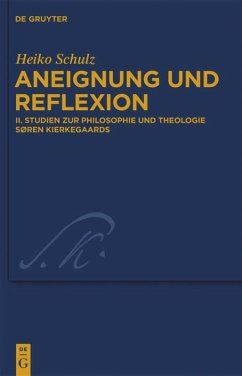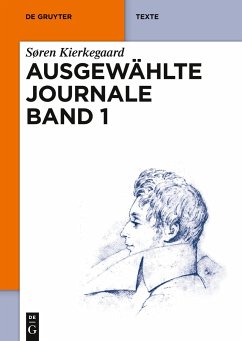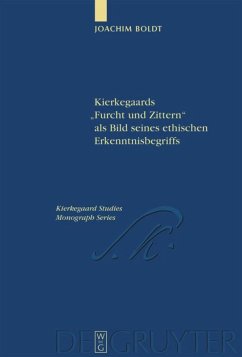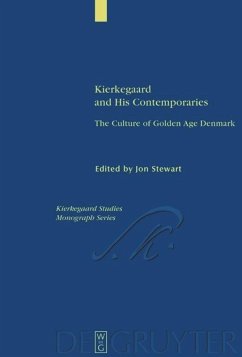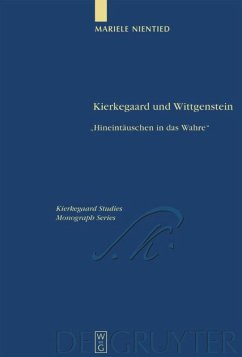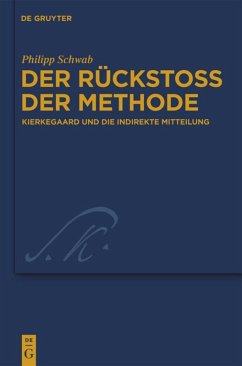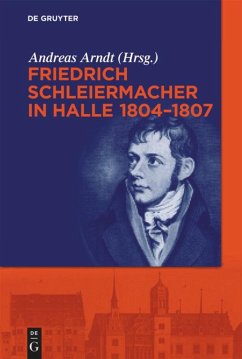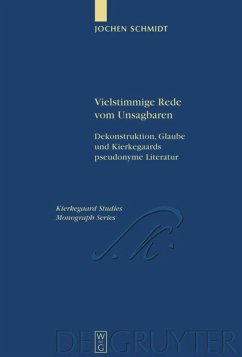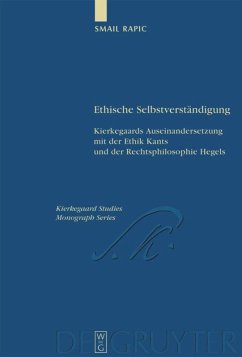
Studien zur Rezeption Søren Kierkegaards

PAYBACK Punkte
0 °P sammeln!
The volume contains a collection of German and English essays dealing with the reception of Søren Kierkegaard which take a closer look at the terms â?appropriationâ?? and â?reflectionâ??. The double meaning in the subtitle is intended: The book not only discusses the (explicit) appropriation of and (implicit) reflection on the ideas of Kierkegaard within the context of their history of reception and influence. It also provides insight into the precursors of Kierkegaard and important sources of his thinking. In the reconstruction of the history of Kierkegaardâ??s reception the focus is on the so-called pseudonymous works and their impact on philosophy and theology mainly within Germany in the nineteenth and twentieth century. In the studyâ??s treatment of the sources, the emphasis is primarily on Kierkegaardâ??s dispute with some of the main representatives of (post) Hegelian thinking.
Der Band enthält eine Sammlung von deutsch- und englischsprachigen Aufsätzen, die sich mit der Rezeption Søren Kierkegaards befassen, und zwar am Leitfaden der Begriffe Aneignung und Reflexion. Der Doppelsinn im Genitiv des Untertitels ist dabei durchaus beabsichtigt: Denn es geht nicht nur um die (explizite) Aneignung sowie die (implizite) Reflexion des Kierkegaard'schen Denkens in ihrer Wirkungsgeschichte, sondern auch um Vorläufer und exemplarische Quellen seines eigenen Denkens. Der Schwerpunkt in der Rekonstruktion der Rezeptionsgeschichte liegt auf den sog. pseudonymen Werken und deren Wirkung in der vornehmlich innerdeutschen Philosophie und Theologie des 19. und 20. Jahrhunderts, während der Rückgang auf die Quellen primär Kierkegaards Auseinandersetzung mit einigen Hauptvertretern des (post-)hegelianischen Denkens nachzeichnet. Beide Textgruppen fördern zahlreiche überraschende, bislang unbekannte oder aber zu Unrecht marginalisierte Zusammenhänge in der Genese wie in der komplexen Wirkungsgeschichte des Kierkegaard'schen Denkens zutage.




